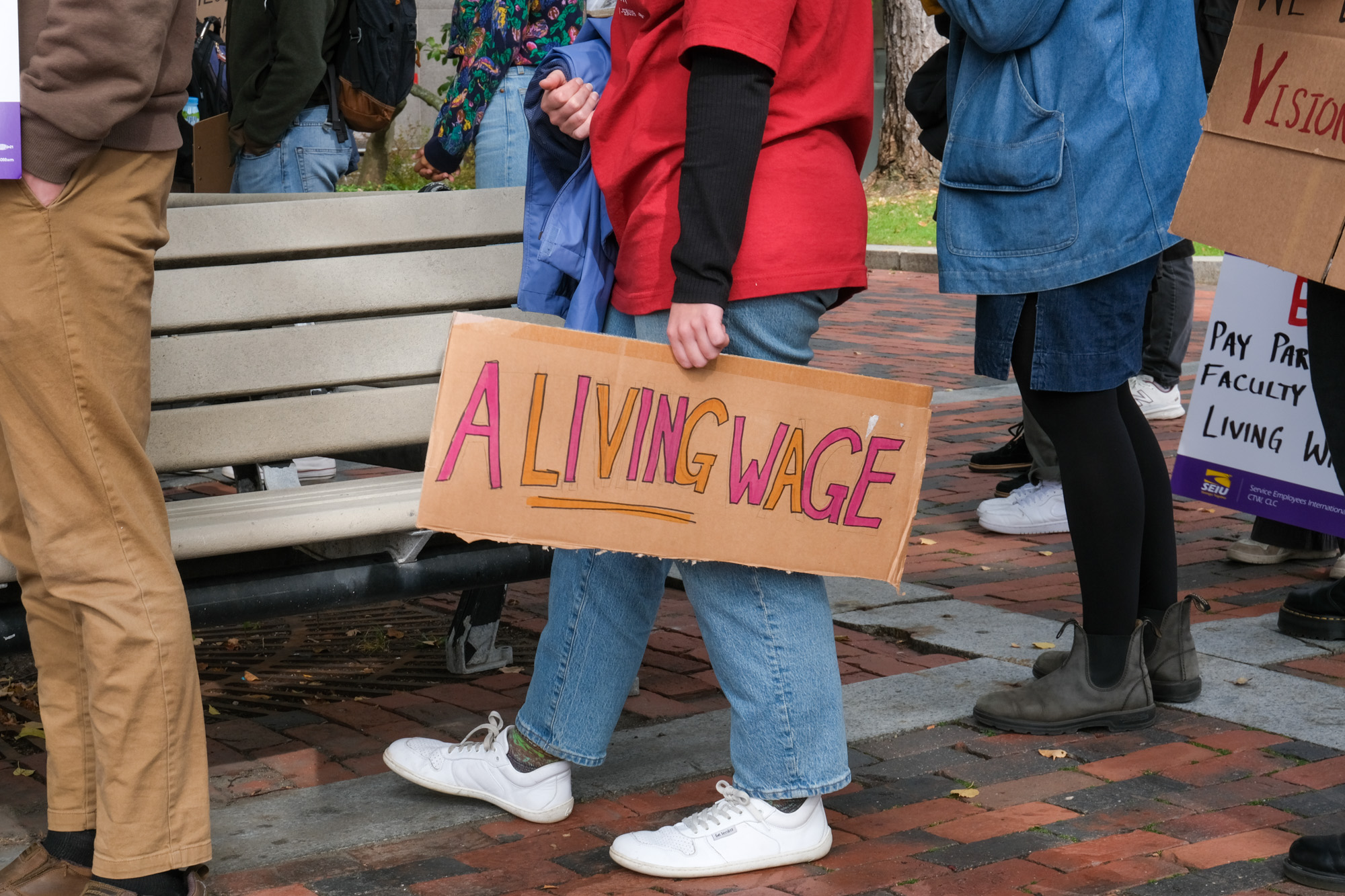See more Daily Free Press coverage of the BUGWU strike here.
The Boston University Graduate Workers Union is considering going on strike, following recent contract negotiations with BU.

At their most recent meeting, members of BUGWU agreed to hold a strike authorization vote. The decision to consider further escalation was made on Feb. 14 after about eight months of bargaining sessions with university officials. According to the BUGWU website, voting began on Feb. 28 and will continue until March 11.
“We’re advocating for a living wage and sustainable benefits that work for us as laborers and students,” said Blair Stowe, a PhD student in the School of Theology and member of BUGWU. “Right now, we do not receive pay that meets our basic needs.”
As of 2023, BU has 18,476 graduate and professional students, with BUGWU currently representing over 3,500 graduate workers.
According to Stowe, BUGWU members are seeking increased benefits such as “dental care, childcare [and] academic freedom” in this round of negotiations.
“We need to feed our kids, we need to pay our rent,” Stowe said. “We need to pay for health insurance, and right now, the way in which we’re compensated does not allow us to do that.”
Eva Paniagua, a student in the College of Arts and Sciences, expressed the vital role graduate workers hold in an academic setting, where they often work as teaching fellows.
“I think TFs are really important because they give you a model to look after,” Paniagua said. “I think it’s important to see someone who is in a graduate position, who’s been through what you’re going through.”
In her biology labs, Paniagua explained that graduate students “run the entire lab,” serving the same function as an instructor.
“For psych classes, they run all of the discussion sections,” said Sarah Tayeh, a sophomore in CAS. “They’re grading homework, grading exams, going over exams with you after that.”
Tayeh also highlighted the unique role graduate students hold when it comes to connecting with the undergraduate students they teach.
“They’re closer to being an undergraduate than professors are,” Tayeh said. “I just feel like they have more relatability and they’re always there for the students.”
Some graduate workers said they believe that because they perform academic labor and research labor, they deserve to be fairly compensated for that.
“I think an argument that gets used a lot is that we’re in training,” Stowe said. “That does not excuse the fact that we have basic needs that need to be met.”
Students are not the only people who recognize the importance of BU’s student employees.
“It’s pretty obvious that we are greatly supported in a massive way by our student staff,” said Jim Rivera, associate director of the Student Employment Office. “It’s not an understatement to say that they are a critical component to the endeavors of Boston University and how it moves forward.”
Rivera said that one of the challenges he sees most frequently for student workers is “balancing work, academics and having a personal life.”
“From a student employment perspective, you know, we want as many students to have the opportunity to work on campus, finance [themselves], make up for expenses that they have, but also be able to enjoy this time of their lives,” Rivera said.
While undergraduate workers are not yet unionized, graduate students formed BUGWU in late 2020 and officially announced the union in February 2023.
BUGWU collaborates with Service Employees International Union Local 509: “a labor union representing more than 20,000 human service workers and educators throughout Massachusetts,” according to David Foley, president of SEIU Local 509.
“We are supporting this unit by encouraging workers to lead, and providing expertise for bargaining and legal questions,” David Foley, president of SEIU Local 509, wrote in an email.
BUGWU will continue to discuss their next steps until the end of voting. Despite the looming decision, Foley said he will continue to support the future of BUGWU.
“When graduate workers win their first contract, we will support them by helping enforce their contract and continuing to build power across the campus and in our union,” Foley wrote.





















































































































